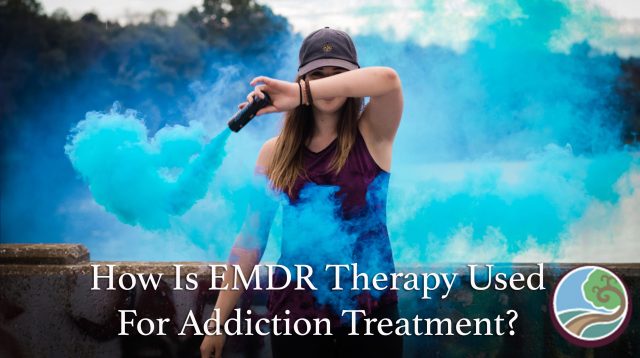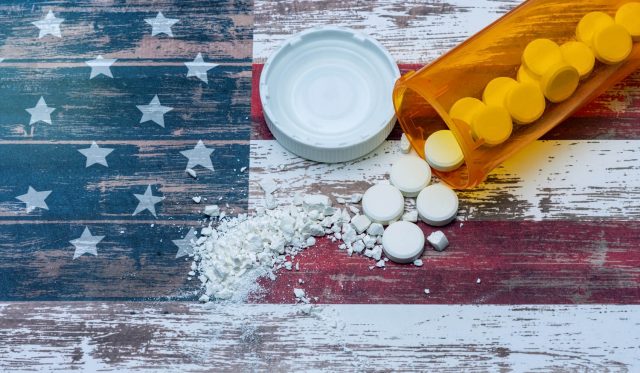If you or a loved one is currently struggling with addiction, please understand that you are not alone. According to the Substance Abuse and Mental Health Services Administration (SAMHSA), there are over 21.7 million people in the United States who currently need treatment for an issue concerning addiction or substance abuse. Many people who experience a problem with drugs or alcohol will not realize the importance of a healthy diet and regular exercise. Living and eating healthy should play an important role in their recovery from addiction. Typically, when someone has abused drugs or alcohol over a long period of time, substance abuse has taken its toll on their physical and mental health. Through recovery from an addiction, a lot of emotional and mental growth is necessary to rewire the brain, helping to cure the symptoms of the addiction. The patient’s physical health should be a major concern as well. Developing healthy eating habits can help ease some of the early withdrawal symptoms. This will also provide a basis for total body, mind, and spiritual health.

For most people who have struggled with alcoholism or drug abuse, the disease of addiction has created other habits, besides just substance abuse. They will have likely developed some severe nutritional deficiencies as a result of their addiction. For someone who has abused alcohol, the client has usually replaced the calorie intake of food with calories from alcoholic beverages. Some who have developed an addiction to stimulants like cocaine or methamphetamine may have skipped entire days of eating food altogether.
Focusing on eating healthy, nutritious foods early on in the initial detox phase of the recovery process is important not only to the physical well-being of the patient but also to the mental health of the individual as well. Replacing the use of illicit drugs or other substances with eating healthy meals, on a regular schedule, will help the person in recovery to develop new habits. This is the beginning of a whole new life, as these habits will play a major role in their successful recovery from addiction.
Food has a profound influence on the way the brain functions. As someone who has studied nutrition, we can assure you that eating unhealthy foods can cause a multitude of health problems. Some chemicals found in fast food can actually have addictive properties in themselves. It is fairly common for us to discover that many people who enter a drug rehabilitation program, sadly cannot remember the last home-cooked meal they ate. Most of these patients will admit that they would simply eat McDonald’s or Taco Bell every single day, that is if they even ate food at all. This is essentially malnutrition and it can have a profound, lasting effect on the mind and on the body.
What healthy foods should I eat while in an addiction treatment program?

A healthy diet in recovery will take into account the levels of serotonin and try to balance them through eating nutritious foods. Serotonin is a hormone produced in the brain that regulates mood and helps the body relax. There are many types of foods to consider as part of a healthy diet for recovery from alcohol and drug addiction. A healthy diet for someone in recovery should include the following:
This the third installment of our ongoing look into the drug rehabilitation industry in the United States and the continued use of body-brokering through "drug rehab recruiters".
You can read part 1 here:
Drug Rehab Recruiters: How the Drug Rehab Industry Still Participates in Body Brokering.
And Part 2 here:
Are Drug Rehab Recruiters Exploiting a Body-Brokering Loophole?
Some call themselves “addiction placement specialists,” or “marketers,” while others are “drug rehab recruiters”. In the healthcare industry, patient brokers are often referred to as “runners,” “steerers” and “cappers.” There is no regulatory code of ethics to abide by this profession. While some of these recruiters may operate on their own personal ethics, legitimately wanting to help others by getting them into treatment, others perform the job with undeniably questionable morals.
When the intention is to make money for a drug rehab facility, all morals and ethics can easily be thrown out the window. When someone has a kid who’s about to die from a drug overdose, the family will often resort to any means necessary to get their loved one into a treatment program. They’re desperate and vulnerable. Many recruiters realize this and take advantage of the urgency in their circumstances.

Abandoning all rationality when faced with a dangerous situation happens all too often. Sometimes people won’t even research a rehabilitation facility before they choose to spend tens of thousands of dollars there. The internet is littered with stories of parents, spouses, family members, and friends who were naïve at this point in their lives. They thought all treatment was the same, they didn’t know an entire sub-group of ‘bad actors’ had popped-up to swindle them. They didn’t know their loved one could die, while actually trying to get treatment for their addiction.
Some individuals who legitimately want their recovery from addiction to be successful, end up getting swept up into this rehab/sober home/relapse/back to rehab shuffle. Yet, others undeniably know exactly what’s going on and they’re just along for the ride. In far too many cases, navigating the rehab shuffle has essentially become a way for them to get a free ride in life.
Typically, your insurance will cover everything at the rehab then you’ll move on to the sober living home. The sober living arrangement has long been a great source for referrals to the addiction treatment industry. Some drug rehab companies even own their own network of sober living homes. While some of these can and do help people recover from their addictions, others operate a kind of relapse mill where, (in rare, yet not uncommon instances) they encourage their residents to relapse. Some sober living homes are known as flop-houses, where drug activity is well-known and intentionally ignored. Once the residents relapse, they can go back to rehab, for free and the company makes money, hand over fist. All of this is just lining the pockets of the bad actors in the rehab industry, at great cost to the American health care system and sometimes costing people their lives.
Now you see that this problem hasn’t gone away with the passage of new laws, what is the next step? How do we resolve this crisis? How do we separate the good treatment providers from the swindlers? These are all fantastic questions that need urgent action.

What is legal does not necessarily mean it is moral. Much of the patient brokering practice is a market response to the high supply/low demand for addiction treatment. Maybe creating a world in which drug use isn’t glamorized on full display is one way to start. We see the need for access to treatment services any time you visit low-income, poverty-stricken areas of major American cities. Addressing the root causes of poverty, mental illness and substance abuse is never a bad place to start.
The demand for treatment is there, the need is there, so why is it hard for addiction treatment programs to keep their doors open? I would argue that the sheer toxicity of greed that has run rampant is largely to blame. The nefarious practices of body brokers, rehab recruiters, and insurance fraudsters have given a bad reputation to the entire substance abuse treatment industry. It’s no wonder that the internet is filled with stories of parents who lost their children due to a drug overdose death, while they were away, supposedly getting treatment for their addiction.
The people who enter treatment, with no intention of recovering also make it harder for people who actually want to quit using drugs or alcohol to get the help they need. Think of all the wasted time, money, and resources that go into the rehab shuffle. Many times the pursuit of profits blinds the world to the legitimate needs of people who need help the most.
Treatment specialists, drug rehab clinicians, even drug rehab owners and operators have come forward to speak out against the unethical practices of others in the treatment industry. It’s not just parents and family members of lost loved ones. Though most internet forums spend a lot of time just pointing fingers at bad-actors in the industry, some have come up with more constructive ways of dealing with the problem from the inside out.
Valid Resource is a marketing and advertising firm from Lake Forest, California that focuses its efforts exclusively on reputable addiction treatment establishments. They run the marketing aspects of evidence-based, ethical drug rehab locations all across the United States. They understand that no one addict is the same and everyone should have an individualized treatment program formulated by medical professionals, to meet their unique needs.

Ethics in Treatment is a website where patients can go to report abuses and unethical or illegal activities within the treatment industry. The stated intent of the website is to: “identify and avoid bad-doers in the space of addiction treatment.” The resources & Reporting tab on the website lists all laws regarding the drug rehabilitation industry and agencies to report abuses too, when applicable.
A regional ethics commission in the Washington D.C. area called the DMV-PLA (DC, Maryland, Virginia Professional Liaison’s Association) is an agency of mental health and substance abuse treatment professionals who abide by a strict code of ethics. Their stated primary purpose is: “to provide support, encouragement, mentorship, education, and networking opportunities for our members while continuing to foster a collaborative and transparent atmosphere.”
Ultimately, when it comes to unethical practices in the addiction treatment industry, good people need to come together to fix the problem. No one governmental agency, politician, marketing firm, or group of concerned parents is going to fix all the complex, nuanced issues facing the addiction treatment industry. The time to demand change is now, it is urgent and it is not going to go away on its own.
PTSD or post traumatic stress disorder is a mental health issue associated with past trauma and is a major factor affecting most people’s addictions. Often, the individual will self-medicate for their PTSD, or other mental health issue with drugs or alcohol, whether or not they even realize that’s why they’re doing it. The connection between stress, anxiety or past trauma and addiction has been thoroughly researched in the scientific community. New discoveries about mental health and diseases like addiction are coming out all the time. EMDR therapy or eye movement desensitization and reprocessing is a very helpful and successful treatment method for people who are struggling with addiction. EMDR has been shown to help patients address and overcome their past traumatic experiences, in a constructive and lasting way. Addiction treatment centers who utilize EMDR therapy can directly target the underlying causes of a patient’s addiction.

EMDR is an effective treatment for PTSD, epilepsy, anxiety, and a wide range of other physical and mental health issues. This includes addiction along with any underlying mental health issues or dual diagnosis. EMDR processes any past experiences that are causing pain and their relationship to current situations that contribute to the person wanting to compulsively use drugs or alcohol. This greatly helps the client incorporate changes into their lives to fit their individual needs and make healthier choices in the future.
For people in a drug rehabilitation program, EMDR treatment shows exceptional results in helping them attain long-term sobriety.
From 2004-2009, the Thurston County Drug Court Program in Washington state performed a study of 220 non-violent, felony drug offenders. In the study, participants were offered an “Integrated Trauma Treatment Program” (ITTP), which combined 2 empirically supported treatment methods, EMDR therapy, and Seeking Safety groups. The preliminary research found that individuals who voluntarily completed the ITTP, graduated from drug court at a rate of 91%. This was far higher than for those who did not complete the program, who graduated at a significantly lower rate of just 57%. This, along with many other follow-up studies have given credence to EMDR therapy as an effective substance abuse treatment method.
Numerous other studies have shown lower rates of recidivism and relapse for participants who received EMDR therapy. For participants that received EMDR therapy, the recidivism rate was 12%, while people who declined EMDR had a much higher recidivism rate of 33%. One of the major reasons people who struggle with addiction continue to relapse (or re-enter the court system) is partially due to their co-occurring mental health issues going untreated. Detox and some cognitive behavioral therapy sessions, or legal threats from authorities can only do so much in helping a person quit using drugs or alcohol.
Addiction is a complex disease. Drugs and alcohol can easily become a coping mechanism for people to deal with past traumatic experiences.

In the addiction treatment industry, co-occurring disorders are the rule, rather than the exception for people who suffer from a substance use disorder. Comprehensive treatment options can offer the best outcomes for a patient’s ultimate recovery, which includes complete abstinence from substance abuse. When a person exhibits a substance use disorder, their brains commonly have inhibited responses in adaptive information processing (AIP). This term refers to the theory in the psychological community, that all instances of trauma are stored in the brain’s neural network, causing the brain to behave irrationally at times. As your brain encounters new experiences, the information that is processed gets installed into a network of pre-existing neural pathways. Once there, your mental responses can be distorted by past or current emotionally-traumatic experiences. These integrated memories are stored with your emotional responses, which inherently guide your future actions and decisions.
To read more about EMDR Therapy as a treatment for addiction, check out Huntington Beach, California drug recovery at: https://healingpathrecovery.com/addiction-blog/emdr-therapy-addiction-treatment